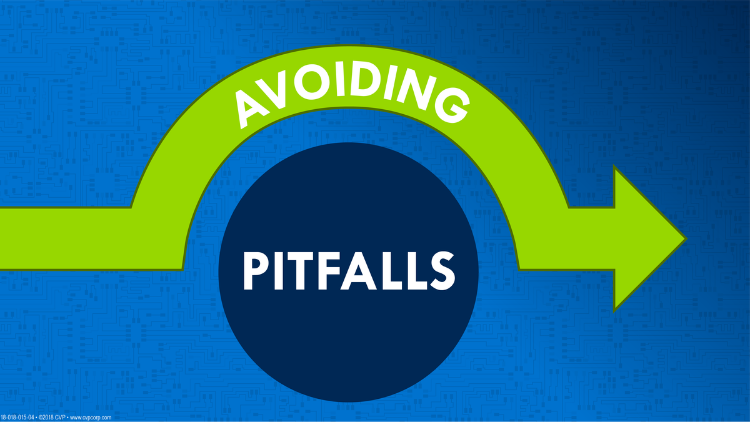Affiliate marketing is a dynamic online strategy where I partner with companies to earn a commission by recommending their products or services. It’s a performance-based system where the rewards hinge on my marketing efforts translating into actual sales or leads.
Central to affiliate marketing are three roles: merchants, affiliates, and customers. Merchants offer products or services and seek partnerships to promote them. An affiliate, like myself, is the promoter who markets those offerings. And the customers? They’re the buyers whose purchases through my marketing endeavors earn me the commission.
Now, there are a few ways this can work, each tied to specific actions. Pay-per-click (PPC) programs pay for traffic I direct to the merchant’s site, while pay-per-sale (PPS) gives me a cut of a sale made via my referral. Then there’s pay-per-lead (PPL), rewarding me for leads generated, like sign-ups or form submissions.
It might seem straightforward, but success in this field requires a keen understanding of the nuances behind these models. That’s precisely what we’ll delve into next, as I break down how to choose the right affiliate products and services, setting the groundwork for a fruitful affiliate marketing endeavor.
Building the Foundation: Choosing the Right Affiliate Products and Services

The success of my affiliate marketing efforts largely hinges on selecting products or services that not only resonate with my audience but also promise a reasonable return. I meticulously scour for offerings that match my niche, ensuring I can discuss them with authenticity and expertise.
I assess the potential profitability and relevance of each product, considering factors such as market demand, competition level, and compatibility with the content I create. Thorough research helps me avoid wasting time on offerings that won’t yield results, no matter how enticing they might look on the surface.
Equally important is an in-depth analysis of affiliate programs. I look for programs that offer competitive commission rates, timely payouts, and a reliable tracking system. The reputation and quality of the products are non-negotiable because my credibility is tied to what I endorse.
I don’t put all my eggs in one basket – diversifying my affiliate portfolio is a strategy I stand by. This approach lessens the risk and capitalizes on different products’ seasonal peaks in sales. It’s a safeguard against market fluctuations and changing consumer interests.
Next, I’ll share strategies that complement the careful selection of products and services. These tactics are designed to elevate the visibility and appeal of affiliate offerings, thereby potentially maximizing conversions and, ultimately, revenue from my chosen partnerships.
Strategies for Successful Affiliate Marketing
Success in affiliate marketing hinges on more than just picking the right products; it’s about strategic execution. You need to create content that resonates with your audience while ensuring it’s seen by as many eyes as possible. Here, I’ll walk you through some key strategies to help you excel in this competitive field.
Start with creating valuable content that stands out. Whether it’s through blog posts, videos, or reviews, your content should inform and engage your audience. Aim to answer questions, solve problems, and offer insights that readers can’t get anywhere else. It’s not just writing about a product; it’s about providing a perspective that adds real value to the reader’s experience.
Next, boosting your content’s visibility through search engine optimization (SEO) is crucial. Utilize keyword research to understand what your audience is searching for, and tailor your content to meet those needs. Structure your articles with clear headings, use internal and external links wisely, and keep your content updated to climb the search engine rankings.
Don’t forget the power of social media marketing. Platforms like Facebook, Instagram, and Twitter can amplify your reach significantly. Share your affiliate content strategically here, engage with your followers, and consider paid advertising options to enhance your presence.
Finally, email marketing remains a potent tool. Building an email list allows you to communicate directly with your audience, fostering a relationship that increases the likelihood of conversions. Send regular newsletters with exclusive content, personalized offers, and updates on new posts or products to keep subscribers informed and interested.
Once you’ve understood these avenues and started applying them, you’ll likely begin to notice areas for improvement. But watch out! There’s a fine line between effective marketing and common pitfalls that can undermine your efforts. In the following section, I’ll guide you on how to steer clear of such mistakes and maintain the credibility and attractiveness of your affiliate marketing endeavors.
Common Pitfalls in Affiliate Marketing and How to Avoid Them

Embarking on your affiliate marketing journey is exciting, but keep in mind that even the best marketers can stumble. Knowing these common pitfalls can save you a lot of headaches down the road.
One major misstep is falling into the trap of using spam-like methods. Bombarding social media feeds and email inboxes with incessant promotions just doesn’t cut it. Instead, focus on crafting messages that speak to the needs and interests of your audience. Provide them with solutions, not just sales pitches.
Let’s talk legality. The Federal Trade Commission (FTC) takes disclosures seriously. As an affiliate marketer, you’re required to be upfront about your business relationships. If you’re getting a commission for recommending a product, make sure your audience knows this. It helps build trust and keeps you on the right side of the law.
Speaking of trust, this should be the cornerstone of your affiliate business. Keeping that trust means always prioritizing the accuracy and usefulness of the information you share over making a quick buck. Before promoting any product, ask yourself if you would use it. If the answer is no, consider whether it’s something your audience should hear about from you.
The successful affiliate marketer is one who values their reputation as much as their revenue. By staying genuine and committed to your audience’s best interests, you can create a sustainable and rewarding business.
Leveling Up with Wealthy Affiliate: Your Path to Affiliate Success

If you’re ready to take your affiliate marketing efforts to the next level, you’ll find no better ally than Wealthy Affiliate. With its comprehensive training modules, you are equipped with the KNOWLEDGE and SKILLS you need to excel.
When I first stumbled upon Wealthy Affiliate, I was skeptical, as you might be now. Yet what sets them apart is their immersive community. Imagine tapping into a network of experienced marketers who are eager to exchange tips, strategies, and moral support. This is crucial, because, in my experience, success often hinges not just on what you know, but on who you can learn from.
Wealthy Affiliate does not only offer guidance; they provide an arsenal of tools. From keyword research to website analytics, they’ve got it covered. It’s like having a personal toolbox that grows with you – because, let’s face it, as you mature in your affiliate journey, your strategies and tools need to evolve too.
Lastly, the proof is in the pudding, or rather, in the success stories that Wealthy Affiliate proudly shares. Hearing how others have thrived, how they’ve turned lessons into measurable profits, can be the catalyst you need to push your own boundaries. I encourage you to look at these testimonials – they are real people with genuine achievements.
Joining Wealthy Affiliate could be a defining decision in your affiliate marketing career. After all, investing in your growth often means investing in others who can guide you. Shake off the doubt and take that decisive step forward with Wealthy Affiliate as your mentor.
Sign Up For A Free Account Today! No Credit Card Required!









